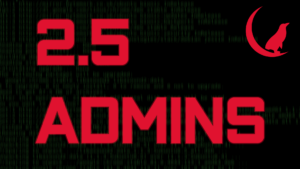
 2.5 Admins
2.5 Admins 2.5 Admins 210: Ryzen Up
Aug 29, 2024
The discussion dives into AMD's controversial patch for Ryzen 3000 CPUs and scrutinizes the benchmarking of Ryzen 9000 processors. The hosts touch on the difficulties of balancing innovation and stability in kernel development and the challenges of integrating Bcachefs. Cybersecurity compliance issues at Georgia Tech reveal stark consequences for institutions failing to meet security standards. Plus, practical advice is offered on monitoring home networks, especially with the surge of IoT devices.
Chapters
Transcript
Episode notes

